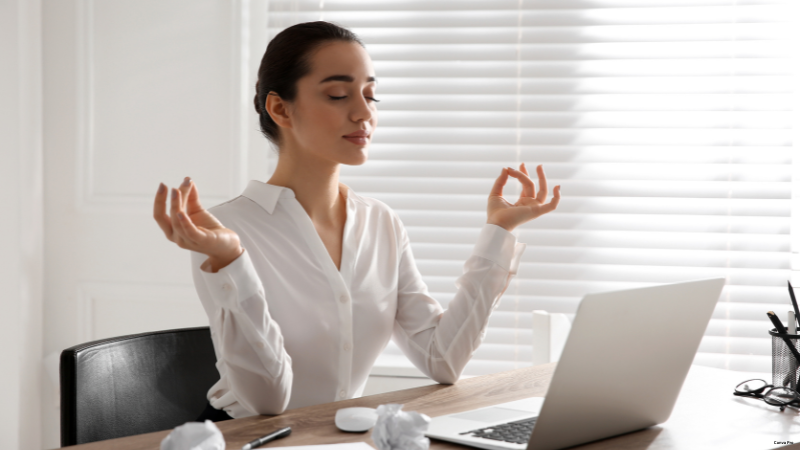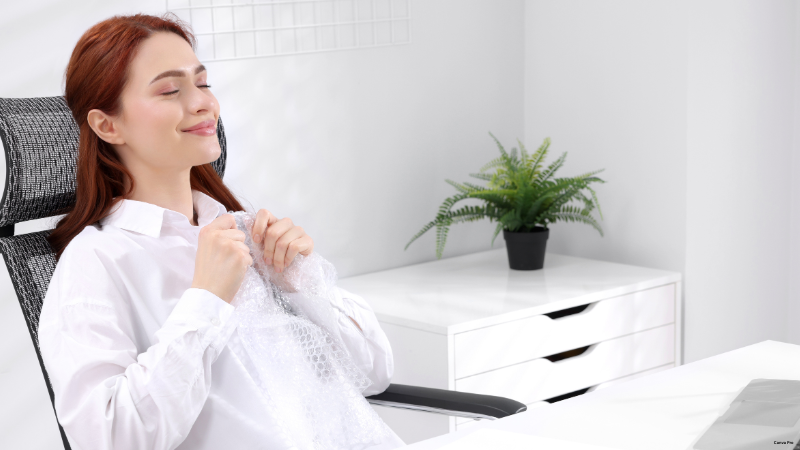Stress relief methods can help ease stress symptoms and boost how you feel overall if you’re managing health problems. Try easy techniques you can do on your own to feel calm inside.
Stress relief methods are important for managing stress. Relaxing isn’t just about feeling peaceful or enjoying hobbies. It helps reduce the impact of stress on your body and mind in a structured way. Using these relaxation techniques can help you handle everyday stress and activate the body’s relaxation response. They can also help with lasting stress and stress tied to health issues like heart problems and ongoing pain.
Whether you’re feeling completely stressed or managing just fine, you can benefit from relaxation techniques. These basic methods are easy to pick up and help you calm down. Most of the time, they are either free or very affordable and involve almost no risks. You can also use them anywhere when you need some peace of mind.
Try easy relaxation techniques to help lower your stress, take better care of your health, and feel better overall.

Why relaxation techniques can help
When you’re dealing with daily tasks or health issues, relaxation methods might not feel like a top priority. But skipping these techniques means missing their big health perks.
Relaxation techniques help with:
- Slowing your heartbeat
- Lowering your blood pressure
- Helping you breathe
- Making your digestion better
- Keeping blood sugar stable
- Lower production of stress hormones
- Improve blood flow to muscles
- Ease muscle tightness and ongoing pain
- Boost focus and mood
- Improve the quality of sleep
- Help fight off fatigue
- Lessen feelings of anger or frustration
- Build stronger problem-solving skills
To gain the most from relaxation methods, pair them with healthy habits:
- Focus on positive thoughts
- Find humor in situations
- Tackle problems head-on
- Use time
- Stay active with regular exercise
- Eat a nutritious diet
- Get enough rest every night
- Spend time outdoors
- Build strong and supportive relationships
Relaxation methods you can try
Healthcare workers like mental health specialists and alternative health providers can show you how to relax using different methods, but you can also learn many of these techniques on your own.
Most ways to relax focus on staying aware and concentrating. The key is paying attention to soothing things while noticing how your body feels. It is not so much about the exact method; what helps is finding what works best for you to relax and feel the benefits.
You may also read: Ease anxiety and stress: Master the art of belly breathing
Some examples of relaxation techniques are:
Autogenic relaxation. This focuses on relaxation created by yourself. It mixes calming mental images with awareness of your body to help lower stress.
You repeat soothing words or ideas that help you relax and release tight muscles. For example, you could imagine a calm place while paying attention to slowing down your breaths or heartbeat. Another option is to focus on how your body feels easing tension in specific areas like your arms or legs step by step.
Progressive muscle relaxation. This technique requires you to tighten and then loosen different muscle groups in a structured way. By doing this, you learn to notice the difference between tension and relaxation in your body improving how well you understand the physical sensations you experience.
To do a progressive muscle relaxation exercise, you can start with your toes and work up to your head, or start with your head and work down to your toes. The process requires you to tighten each muscle group for about 5 seconds, relax for 30 seconds, and then repeat the pattern. To get the best outcome, pick a place that’s quiet and free from interruptions. You can also pair this with a body scan meditation to feel even more relaxed.
Using visualization and imagery. Visualization works as a strong relaxation method where you imagine yourself in a calm or peaceful place. Practicing this approach may help when trying to reduce stress.
You may also read: Exercise and mental health: The science behind the mood boost
To get the best out of visualization relaxation, try involving your senses as much as possible. Picture yourself on a beach, and imagine the salty ocean smell, the crash of waves against the shore, and the warmth of sunlight on your skin. Choose a peaceful spot, wear loose clothes, and close your eyes. Pay attention to your breath while staying in the present and keeping your thoughts positive.
Other useful ways to relax include:
- Practicing deep breathing or meditative breathing
- Getting a professional massage
- Exploring meditation forms like mindfulness or guided meditation
- Practicing tai chi
- Trying out yoga
- Learning biofeedback techniques
- Participating in music or art therapy
- Using aromatherapy
Relaxation methods need practice
Noticing signs of physical stress, like tight muscles, gets easier as you get better at relaxing. Once you know these signals, you can use relaxation methods. This helps prevent stress from worsening and affecting how you live.
Learning to relax takes time and regular effort, just as learning any other skill does. Try not to let practising relaxation cause even more stress for you. Be kind to yourself as you improve.
You may also read: Stress Signals: Listen to Your Body, Recognize and Respond
If one method doesn’t work for you, try something else that might fit better. If managing stress feels impossible, talk to your doctor about different solutions.
Some people who are dealing with serious mental health issues or past traumas might feel emotional discomfort when trying certain relaxation exercises. Though this doesn’t happen often, you should stop right away if any technique makes you feel distressed and talk to a mental health expert or doctor for help.
Using stress relief methods and practicing visualization can help you handle stress better. It can also bring more calm and balance to your life.
Source:
Mayo Clinic. Strength training: Get stronger, leaner, healthier. https://www.mayoclinic.org/healthy-lifestyle/fitness/in-depth/strength-training/art-20046670
Disclaimer: The content on this website is meant to support, not replace, medical treatment and advice. Please seek professional advice if you believe you may have a condition. No content on this site should ever be construed as a substitute for medical advice from your doctor or other healthcare professional.
#stress_relief_techniques_for_anxiety, #best_relaxation_methods_for_stress_management, #how_to_reduce_stress_naturally_at_home, #progressive_muscle_relaxation_exercises_guide, #visualization_techniques_for_stress_reduction, #deep_breathing_exercises_for_stress_relief, #benefits_of_autogenic_relaxation, #meditation_and_mindfulness_for_stress_relief, #yoga_poses_to_reduce_stress_and_anxiety, #aromatherapy_for_calming_stress_and_anxiety, #natural_ways_to_lower_blood_pressure_and_stress, #stress_relief_tips_for_better_sleep_quality, #how_to_manage_chronic_pain_with_relaxation, #guided_meditation_for_relaxation_and_focus, #stress_relief_exercises_for_muscle_tension

